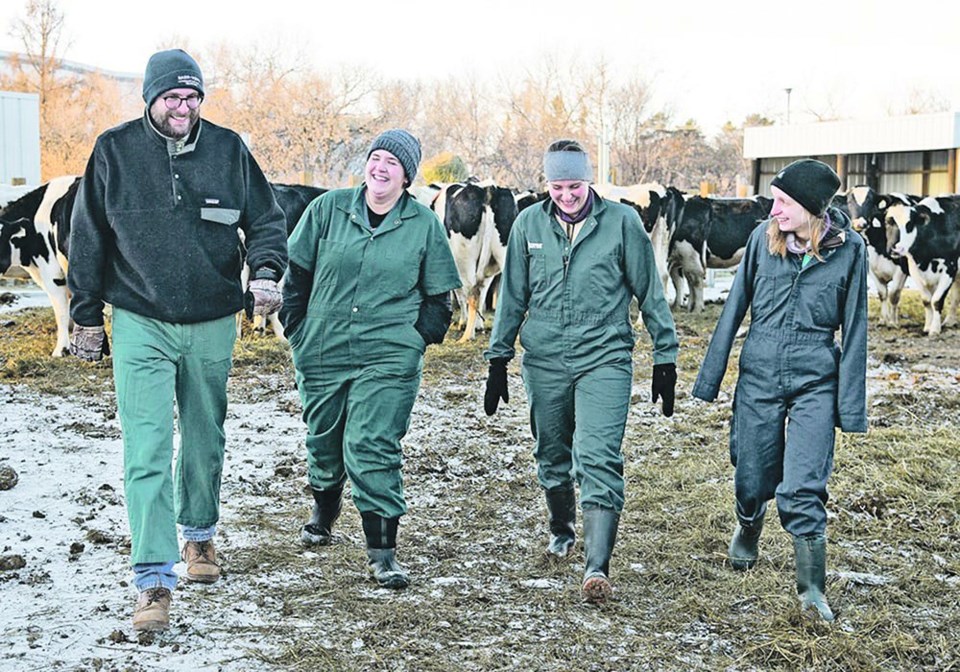WESTERN PRODUCER — McKenna Edmand was walking to class last week when she received the good news about funding for her field of veterinary study.
“I was on my way to a horse lab in my full coveralls and I actually collapsed to the ground because I just couldn’t believe it. I had to read the email multiple times,” said the first-year student at the Western College of Veterinary Medicine at the University of Saskatchewan.
“It was very emotional. It’s been so stressful having this always on my shoulders as a student and just not knowing the future so it was a big relief for sure,” she said.
The email was sent by Dr. Gillian Muir, dean of the WCVM, who broke the news that the British Columbia government will invest about $10.7 million to double the number of provincially subsidized students to 40 from 20 in the WCVM’s veterinary medicine program this fall.
That means Edmand and some other students will not have to pay an additional $55,000 per year to study alongside other Canadian students who pay $13,000 in tuition through an interprovincial funding agreement.
“There was a lot of excitement here when that announcement came out,” said Muir.
“Students still have the debts from what they paid from this year but going forward they’re only going to be paying regular tuition.”
Ranchers, veterinary organizations and students had urged the B.C. government to help train additional vets because more are needed. Projections indicate there will be more than 750 job openings for veterinarians by 2029.
“Increasing access and affordability to veterinary medicine education helps us to address the shortage of veterinarians in B.C. and build a robust workforce,” said Anne Kang, B.C. Minister of Advanced Education and Skills, in a news release.
There is an inter-provincial agreement at the WCVM between B.C., Saskatchewan and Manitoba in which each province pays for about 20 of the 78 available seats. Alberta used to be part of that agreement but it withdrew in 2019 after starting a veterinary training program at the University of Calgary.
Non-subsidized seats at the WCVM have annual tuition costs of $68,000, but provincially subsidized seats cost $13,000 per year.
B.C. is providing an additional $1.2 million in funding to the college, which enables the school to waive $55,000 in tuition fees for 24 previously admitted B.C. students from 2020 and 2021 who were not in a provincially subsidized seat.
“It’s really wonderful news for B.C. students who want to train as veterinarians. It means twice as many can train here as we’ve been able to accept in the past year or so,” said Muir.
The funding announcement is a game changer for Madeleine Flahr of Courtenay, B.C., who is also in her first year of veterinary training and has about $55,000 in student debt.
“If they continue this funding, then I can absolutely afford to go back to rural B.C. and work large animal. It opens up so many opportunities, so that’s really exciting,” she said.
Ruth Patten is another student breathing easier despite a heavy debt load after two years of tuition.
“Those of us in second year already have upwards of $150,000 in debt and so next year we get to pay just the normal amount of debt, which is great. But it’s still unknown whether or not, come fourth year, we’re going to go back to paying international fees or not.”
Muir said the $10.7 million will fund 100 students at the WCVM but the length of that commitment hasn’t been established.
“I’m hoping the intent is to not just continue to fund these extra 20 throughout their program, but to actually add 20 every year so there’s always 40 B.C. students in the program,” she said.
Muir added that the B.C. government has said it will subsidize the B.C. students already paying the higher rate of tuition as they move through the program.




